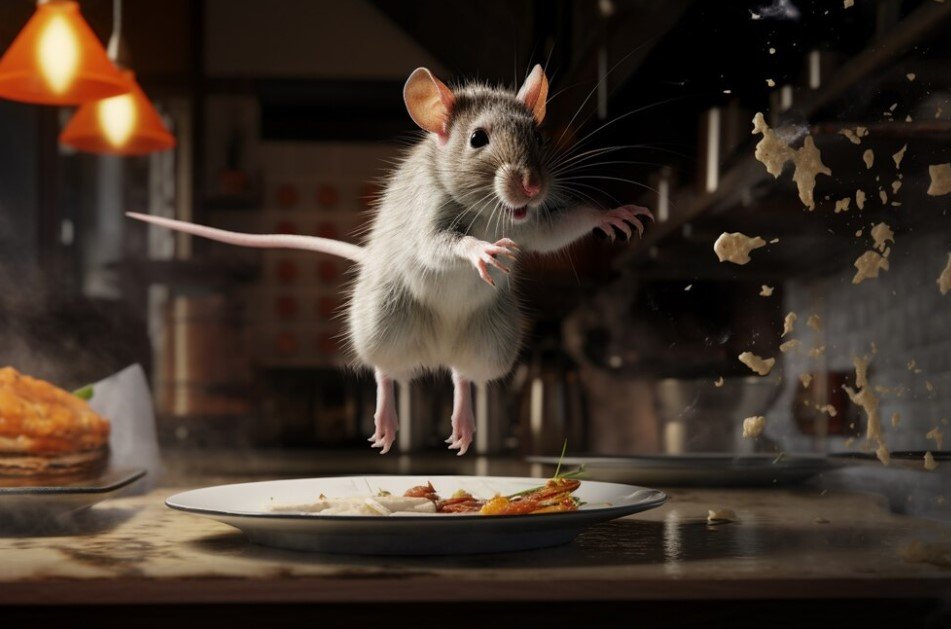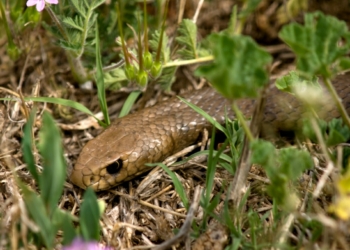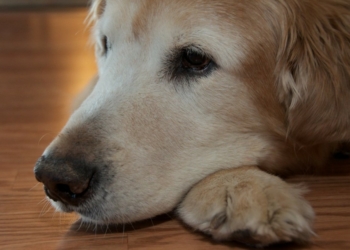Rats, rodent, garbage cans, bananas, diverse and often surprising dietary habits. While they typically consume grains, fruits, and vegetables, these resourceful rodents also have a penchant for scavenging human food waste. Their omnivorous nature means they readily devour meat, insects, and even pet food when given the chance. Understanding a rat’s diet is crucial not only for those who keep them as pets but also for pest control efforts.
Unraveling the mysteries of what rats eat can offer valuable insights into their behavior and help in devising effective strategies to manage their presence. In this post, we’ll delve into the intriguing world of rat diets, exploring both their natural preferences and adaptable eating habits. By gaining a deeper understanding of these rodents’ culinary inclinations, you’ll be better equipped to coexist with them or address any challenges they may pose.

Understanding Rat Feeding Habits
Omnivorous Diet
Rats are opportunistic feeders, which means they eat a wide variety of foods, including both plant and animal matter. Their diet can consist of fruits, vegetables, grains, seeds, nuts, insects, meat scraps, and even pet food. This diverse range of food sources allows rats to adapt to different environments and ensures their survival in various conditions.
Rats’ omnivorous nature enables them to scavenge for food in urban areas as well as forage in natural habitats. They are known to consume almost anything edible that comes their way. For example, rats living near human settlements may raid garbage bins for leftover food or feast on fallen fruits from trees.
Influential Senses
The strong sense of smell and taste possessed by rats plays a crucial role in their feeding behavior. These senses help them locate potential food sources and determine whether the food is safe to eat. Rats use their keen sense of smell to detect hidden or buried food items while relying on taste buds to assess the palatability of different foods.
Due to this heightened olfactory capability, rats can easily identify accessible meals within their vicinity. For instance, when presented with a variety of options such as grains or fruits scattered across an area, rats will utilize their keen senses to select the most appealing choice based on scent and flavor.
Natural Foods in a Rat’s Diet
Wild Rats’ Dietary Preferences
In the wild, wild rats have a diverse diet that includes grains, seeds, fruits, and vegetables. These natural foods are rich in essential nutrients vital for their overall health. They also consume insects and small animals to fulfill their protein requirements. This varied diet ensures that wild rats obtain all the necessary nutrients required for their survival.
Rats’ ability to adapt to various environments helps them find an array of food sources such as nuts, oats, and other grains in fields or storage areas. They also scavenge for fruits and vegetables in gardens or discarded produce from human habitation areas. By consuming these items, rats intake vital carbohydrates for energy along with vitamins and minerals crucial for their well-being.
Importance of Natural Foods
The consumption of natural foods is paramount as it provides rodents with essential nutrients like proteins from insects or small animals which help maintain healthy body functions. Fruits and vegetables offer vitamins while grains provide carbs – all contributing towards a balanced diet.
Moreover, natural foods also play a role in maintaining dental health among rodents by aiding in wearing down their constantly growing incisors through gnawing on tough items like nuts or hard fruits found within their environment.
Human Foods Rats Can Eat
Suitable Options
Rats can safely consume a variety of foods that are commonly found in human diets. These include whole grains, fruits, and vegetables. For instance, rats can eat rice, which is a type of whole grain. They also enjoy munching on fruits like bananas and various vegetables such as carrots and broccoli.
Lean options like cooked chicken and eggs are suitable for rats to eat. These provide the necessary nutrients without adding excessive fat or harmful substances to the rat’s diet.
Foods to Avoid
It’s crucial for rat owners to be aware of the foods that should be avoided when feeding their pets. Processed foods containing preservatives or artificial additives should not be given to rats as they can have adverse effects on their health.
High-sugar foods must be kept away from rats’ diets since these may lead to obesity and dental issues in these small animals. This means steering clear of sugary treats like candy or other human sweets when considering what rats can eat.
The Importance of a Balanced Diet for Rats
Essential Nutrients for Rats
Rats require a balanced diet that consists of protein, carbohydrates, fats, vitamins, and minerals. Protein is crucial for their growth and repair of body tissues. Carbohydrates provide energy while fats are essential for healthy skin and fur. Rats need vitamins like vitamin A for vision and vitamin D for calcium absorption. Minerals such as calcium and phosphorus are vital for strong teeth and bones.
Rats also need to consume these nutrients in the right proportions to maintain overall well-being. Without adequate protein intake, rats may experience stunted growth or muscle weakness. On the other hand, an excess of certain nutrients can be harmful too; excessive fat consumption can lead to obesity in rats.
Proper nutrition is paramount in ensuring that rats have healthy fur, teeth, immune system function, and overall health. When rats receive all the necessary nutrients from their diet in the right amounts, they are less likely to develop health issues related to nutritional deficiencies.
Risks of Imbalanced Diets
Imbalanced diets can pose significant risks to a rat’s health. For instance,nutritional deficiencies resulting from an inadequate diet can lead to various health problems such as hair loss or skin issues due to lack of essential fatty acids or proteins. Moreover,moderation is key. In contrast,a balanced diet supports not only physical but also mental well-being by preventing potential mood disorders caused by nutrient imbalances.
To ensure that pet owners understand how critical balanced nutrition is for their pet rat‘s well-being,rat owners should be mindful about offering a variety of foods rich in different nutrients rather than relying solely on one type of food.
Foods That Are Harmful to Rats
Toxic Foods
Rats are sensitive creatures, and certain foods can be toxic to them. For instance, chocolate, caffeine, and raw beans should never be part of a rat’s diet. These items contain substances that are harmful to rats’ health and can even be fatal if ingested in large amounts.
Consuming sugary treats is also detrimental to rats’ well-being. The high sugar content in these snacks can lead to obesity and other health issues such as diabetes in rats. Therefore, it’s crucial for rat owners to avoid feeding their pets any form of sweets or candies.
High-Fat and High-Salt Foods
High-fat or high-salt foods may seem harmless but they can actually contribute to various health problems in rats. Overconsumption of these types of food can lead to obesity which puts the rat at risk for cardiovascular diseases and other related complications.
Salty foods might cause dehydration in rats when consumed excessively. This imbalance could result in serious health issues for the animal so it’s best avoided altogether.
Fruits Causing Digestive Issues
While fruits are generally considered healthy options for humans, some fruits may not sit well with our rodent friends. Citrus fruits like oranges contain acids that could upset a rat’s digestive system when eaten frequently or excessively.
Moreover, citrus fruits might cause skin irritations on the rat’s mouth due to their acidic nature; this discomfort could discourage the animal from eating properly leading to potential nutritional deficiencies.
Feeding Pet Rats Vs. Wild Rats
Specific Nutritional Requirements
Pet rats have specific nutritional requirements that must be met through a controlled diet. They need a balanced intake of protein, fat, and carbohydrates to maintain their health. For example, pet rats require a diet rich in grains, fruits, and vegetables to ensure they receive essential vitamins and minerals.
Rats also need access to fresh water at all times. Water is crucial for maintaining their overall well-being as it aids in digestion and helps regulate body temperature. In contrast, wild rats obtain water from various sources such as puddles or natural bodies of water.
Pet rats thrive on high-quality commercial rat food that provides the necessary nutrients they require for optimal health. These commercially formulated diets are carefully designed to meet the specific dietary needs of pet rodents.
Adaptation to Environmental Factors
Wild rats adapt their diet based on seasonal availability and environmental factors. Their eating habits change depending on what’s accessible during different seasons. For instance, during warmer months when there’s an abundance of fruits and crops available in fields or gardens, wild rats may consume more fresh produce compared to colder months when these items are scarce.
In addition to seasonal changes, environmental factors play a significant role in determining the diet of wild rats. Urban-dwelling wild rats might scavenge for food scraps around human habitation while those living in rural areas rely more heavily on natural vegetation and small insects for sustenance.
Both pet and wild rats benefit from natural diets consisting of fresh fruits, vegetables, seeds, nuts, grains etc., which closely mimic what they would eat if left in their natural habitat without human intervention.
How Often and How Much to Feed Rats
Feeding Frequency
Pet rats, like adult humans, should be fed once or twice daily. This feeding routine helps maintain their health and prevents overeating. Younger rats, however, may need more frequent meals due to their higher energy needs. It’s crucial to monitor the food intake of pet rats to avoid both underfeeding and overfeeding.
Rats are known for being opportunistic eaters in the wild, consuming small amounts of food throughout the day. However, when kept as pets, it’s important to establish a regular feeding schedule for them. This not only regulates their eating habits but also allows owners to keep track of any changes in appetite or behavior that could indicate health issues.
Portion Control
When determining portion sizes for pet rats, it’s essential to consider factors such as age, activity level, and overall health. Adult rats usually require around 20-30 grams of food per day; this can be divided into two meals if necessary. For younger rats with higher energy demands during growth phases, slightly larger portions may be needed.
It’s advisable to provide a balanced diet that includes a variety of foods such as pellets specifically formulated for rodents along with fresh fruits and vegetables. Offering diverse options ensures that pet rats receive all the essential nutrients they need for optimal health.
Maintaining an appropriate portion size is vital in preventing obesity in pet rats which can lead to various health issues including heart disease and joint problems among others.
The Role of Water in a Rat’s Diet
Hydration is Key
Rats, like all living creatures, need fresh water to stay hydrated. Their water consumption can vary depending on their diet, activity level, and the environmental conditions they are exposed to. Just like humans, rats require water for various bodily functions such as digestion and temperature regulation. Without adequate hydration, rats can suffer from serious health complications.
A rat’s diet plays a crucial role in determining its water intake. For instance, rats consuming dry diets with low moisture content may need to drink more water compared to those on wet or fresh food diets. Factors such as high fat content or protein in their diet might influence their thirst levels. It’s essential for pet owners to monitor their rat’s drinking habits and ensure that they always have access to clean and fresh water.
Dehydration poses significant risks to a rat’s health. Rats that do not consume enough water may experience issues related to urinary tract function and overall well-being. Hence, it is vital for pet owners to be vigilant about providing an ample supply of clean drinking water at all times.
Ensuring Water Availability
Pet owners should make sure that there are multiple sources of water available throughout the rat’s living space so that they can easily access it whenever needed. This could include using drip bottles or shallow bowls strategically placed within the cage or enclosure.
In addition to offering regular meals and treats rich in nutrients such as fruits and vegetables that contain some amount of moisture content can also contribute towards fulfilling a portion of the rat’s daily fluid requirements.
Tips for Responsible Rat Feeding Practices
Nutritional Variety
Pet rats require a diverse range of foods to ensure they receive essential nutrients. This includes a combination of commercial rat pellets, fresh fruits, and vegetables. By offering a variety of foods, you can help prevent nutritional deficiencies in your pet rats. For example, you could provide them with leafy greens like spinach or kale, along with small amounts of fruits such as apples or bananas.
It’s important to remember that sudden dietary changes can upset a rat’s digestive system. Therefore, when introducing new foods into their diet, it’s best to do so gradually. This allows their bodies to adjust without causing any gastrointestinal issues.
Hygiene Maintenance
Regularly cleaning food dishes and removing uneaten perishable foods is crucial for maintaining hygiene in your rat’s living environment. Uneaten food left in the cage can quickly spoil and attract pests or harmful bacteria. By keeping their feeding area clean and free from old food remnants, you can help prevent potential health issues for your pet rats.
In addition to cleaning their dishes regularly, it’s also important to monitor the freshness of the food provided to your pet rats. Fresh produce should be offered daily while removing any uneaten portions after several hours. This practice ensures that your pets are consuming fresh and safe foods at all times.
Closing Thoughts
You’ve now gained a deeper understanding of what rats eat and the importance of a balanced diet for these creatures. Remember, just like us, rats need a variety of foods to stay healthy. So, when feeding your pet rat, think about offering a mix of natural and human foods while avoiding anything harmful. Keep in mind the significance of water in their diet too. By following these tips, you’ll ensure that your pet rat stays happy and healthy.
Now that you’re equipped with this knowledge, go ahead and review your rat’s diet. Make any necessary adjustments to ensure they’re getting the nutrition they need. Your little furry friend will thank you for it!
Frequently Asked Questions
What are the natural foods in a rat’s diet?
Rats in the wild primarily consume seeds, grains, fruits, and vegetables. These natural foods provide essential nutrients for their health and well-being.
Can rats eat human food?
Yes, rats can safely consume many human foods such as fruits, vegetables, whole grains, and lean proteins. However, it’s important to avoid feeding them processed or sugary foods.
How often should I feed my pet rats?
Pet rats should be fed a small portion of fresh food daily to ensure they receive proper nutrition. It’s crucial not to overfeed them as obesity can lead to various health issues.
What role does water play in a rat’s diet?
Water is vital for a rat’s overall health and digestion. Ensure your pet always has access to clean freshwater by providing a water bottle or dish that cannot be easily tipped over.
Which foods are harmful to rats?
Foods like chocolate, caffeine, raw beans, green potatoes contain toxins that could harm or even be fatal for rats if consumed. It’s important to research before introducing any new food into their diet.











